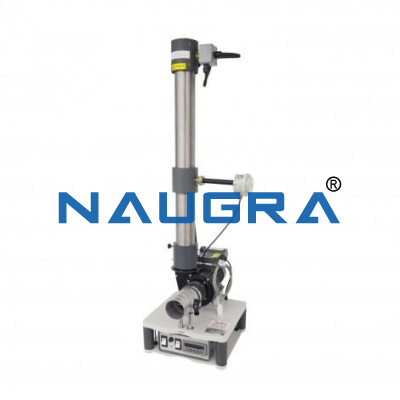- Workshop Tools and Workshop Machines India: buy@naugra.com

Radiation and Convection Apparatus .
Description of Radiation and Convection Apparatus for Science Lab Equipment Laboratory Instruments Manufacturers, Engineering Lab Equipments Manufacturers
The heating element contained within the test vessel is an electrical resistance element whose input power is controlled by a potentiometer. A temperature indicator monitors the temperature at each thermocouple, one measuring ambient and one on the heating element. A Bourdon tube gauge mounted on the unit measures pressure from +1 bar to -1 bar and to cater for the high vacuum conditions a McLeod gauge, also panel mounted, covers the range 0 to 200 mbar absolute. The self-contained vacuum pump fitted to the equipment caters for vacuum conditions down to less than 0.1 mbar, and there is provision for an external pressure source input to be used to allow investigations up to 2 bar absolute.
Experimental Capability of Radiation and Convection Apparatus:
Demonstration of the Stefan Boltzman law of radiation and determination of the constant for differing ambient conditions.
A study of the concept and parameters of emissivity.
An investigation of natural convection for different gases, introducing the Prandtl, Grashof and Nusselt dimensionless groups.
A determination of the natural convection heat transfer coefficient at different pressures.
An investigation of the effects of orientation of the heat source on the convection heat transfer coefficient.
Specification of Radiation and Convection Apparatus:
The apparatus consists of a self-contained bench mounted unit complete with vacuum pump. A heating element (which can be varied) is housed in a chamber designed to withstand vacuum pressures down to less than 0.1 mbar or, with an alternative cover, pressures up to 2 bar absolute. Element heating controls, pressure and temperature indications and suitable ambient medium controls for the chamber are included to enable a series of investigations to be performed on heat transfer by radiation and natural convection
